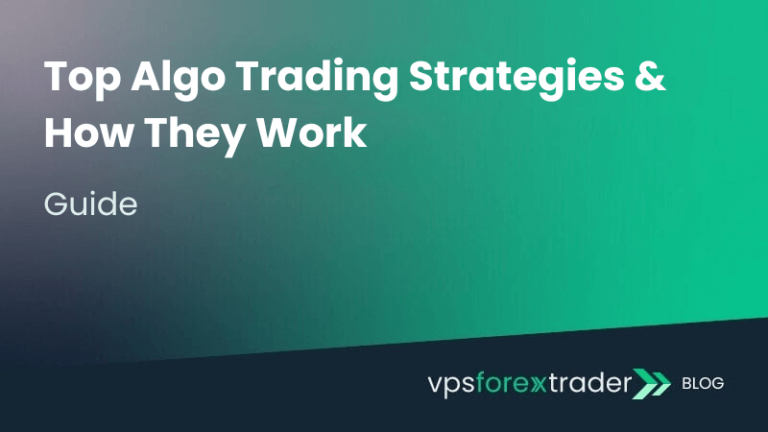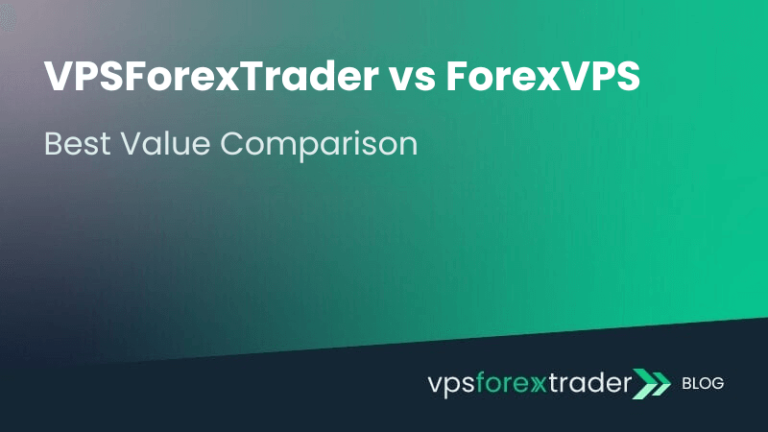Forex trading is one of the most popular forms of investment. The foreign exchange market is the world’s largest financial market, with a daily trading volume of $7.55 trillion in 2022.
In this article, you’ll learn about foreign exchange, how forex trading works, the benefits of trading currencies, and how to set up your first forex account with a reputable broker.
What is Forex Trading and How Does it Work?
What is forex? Foreign exchange (forex, or FX) is a global financial market that allows you to trade currencies. Many investors are drawn into forex trading for several reasons, such as high liquidity, ease of access, and the availability of leverage.
Unlike the stock market, forex does not have a centralized exchange to host all the transactions. All transactions are done over-the-counter (OTC), allowing buyers and sellers to directly engage with each other over the Internet or phone networks.
Well, then, what is forex trading? Simply put, forex trading involves buying and selling currencies to profit from price fluctuations. Brokers have an important role in this aspect, acting as intermediaries between buyers and sellers. As a retail trader, you need to sign up with a broker to start trading forex.
How the Forex Market Works
Although you exchange currencies in airports and currency kiosks, in reality, only a small percentage of currency transactions happen in this setting. The majority of currency transactions happen in the global forex market, where exchanges are done for speculative reasons.
In the forex market, trading currencies is done in pairs, as in major currencies like EUR/USD, USD/JPY, GBP/USD, AUD/USD, and USD/CAD. The first is the “base” currency, followed by the “quote” currency. For example, in the EUR/USD pair, the euro is the base currency while the US dollar is the quote currency.
For forex currency trading, you click “buy,” when you expect that the base currency will increase in value against the quote currency. Whereas, you expect it to decrease in value relative to the quote currency when you click “sell.”
Forex currency trading is open 24 hours a day and five days a week. It has four major sessions: Sydney, Tokyo, London, and New York. The market opens on Sunday at 10:00 PM GMT, when the Sydney session starts, and closes on Friday at 10:00 PM GMT, along with the end of the New York session.
The Benefits of Trading Forex
There are many reasons why millions are drawn into forex trading. Forex is known as one of the most liquid markets in the world, making it easier to enter and exit positions without worrying about demand. As a forex trader, there is less likelihood of price slippage, allowing you to maximize profit potential.
Another benefit if you trade forex is the 24/5 operation. One common criticism about traditional asset classes like stocks is that traders often lose great opportunities over unexpected market events due to the limited trading time. If you’re someone with a full-time job, taking advantage of these events can be tricky. With forex, you can trade at any time of the day regardless of your timezone, granting greater flexibility.
Leverage is another major benefit. Many forex brokers offer leverage to their clientele, which starts at 10:1 and can go as high as 1000:1 or more. This allows you to make larger positions from a small amount of capital, maximizing your potential profit (and loss!).
Lastly, when you trade forex, you generally get lower transaction costs compared to other financial markets. Many brokers offer tight spreads, especially on major currency pairs, while others do not charge commissions on certain account types.
Getting Started with Forex Trading
How to start forex trading? The process is quite simple. You simply have to create an account with a reputable forex broker, verify your details, and fund the account. You can do the entire process in five minutes.
After account creation, you can install third-party electronic trading platforms such as MetaTrader4, MetaTrader5, and cTrader to start trading. Some brokers have their proprietary trading terminals where you can execute all the trades, so you don’t have to worry about being familiar with the MetaTrader platforms in this case.
It’s crucial to know how the market works before getting started. Knowing some forex terms such as currency pairs, pip, spread, lot size, leverage, and margin will also be helpful. As mentioned, trading in this market is very liquid, which means you can lose your capital within minutes if you don’t know what you are doing.
It is always advisable to start with a demo account before doing the real deal. Major brokers such as Pepperstone, IC Markets, and Eightcap offer free demo accounts with a certain amount of virtual funds. This allows you to test strategies and master your instruments before using real money.
Effective Forex Trading Strategies
With forex investment, there are many effective strategies that you can use. Scalping is one, and it is used by many traders. This strategy allows you to make small and frequent trades to take advantage of minimal price movements.
Scalping works very well for forex since the market is characterized by fast price movements, ensuring seamless execution via a dedicated Forex VPS. Also, this strategy completely protects you from incurring swap fees for holding a position overnight, as some brokers charge such fees for holding a position past a specific time, typically 5 PM New York time.
Trend-following is another popular strategy in trading forex, where you simply follow the direction of an ongoing market trend. The idea is to go long (buy) when the market is in an uptrend and go short (sell) when it is in a downtrend.
Managing Risks in Forex Trading
Here are some effective ways to manage risks when forex trading online:
- Always set take profit and stop loss levels
- Determine a proper position sizing. As a common rule, only risk a maximum of 3% of your capital on a single trade
- If you’re a beginner trader, start with small leverage (10:1) until you fully understand how leverage works for your positions
- Do not put all your money in one basket. Diversify and trade multiple pairs
- Strictly stick with your strategy when trading forex online. Many traders lose their capital over emotional trading
Choosing the Right Forex Broker
As a forex trader, you want to find the best broker in the market. However, making a choice is not a walk in the park since you have a lot of providers to choose from. Here are some tips to choose the right broker:
- Regulation. Go for brokers that hold licenses from top finance regulators such as the United Kingdom’s Financial Conduct Authority (FCA), the Cyprus Securities and Exchange Commission (CySEC), and the Australian Securities and Investment Commission (ASIC).
- Trading Platforms. Check for compatibility with top trading platforms to make sure that you are equipped with reliable and user-friendly tools. Brokers offering MetaTrader4, MetaTrader5, cTrader, and TradingView are preferred.
- Spreads and Commissions. Spreads and commissions are crucial to your profitability. Go for brokers that offer competitive spreads, ideally 1 pip or less per trade. Alternatively, going for a provider with a no-commission policy is also a smart move, especially when you’re using a RAW account.
How to Build a Rule-Based Forex Trading System
One of the biggest mistakes new traders make is relying on emotions or gut feeling to enter and exit trades. Successful traders use structured systems, clear, rule-based methods that are consistent, testable, and trackable. Whether you’re trading part-time or looking to go pro, creating a personalized trading system is the foundation of long-term success.
Here’s a simple 5-step framework to build your own trading system from scratch:
Step 1: Define Your Market Conditions
Decide what type of market behavior your strategy is built for:
- Trending? (e.g., breakouts, moving average crossovers)
- Ranging? (e.g., mean reversion, support/resistance bounce)
- Volatile spikes? (e.g., news-based scalping)
Next, select which pairs you’ll trade (e.g., EUR/USD, GBP/JPY), and define your timeframes (scalping = 1–15m, swing = 4h–daily).
Step 2: Choose Specific Entry & Exit Rules
This is where the system becomes mechanical. Write out exact conditions for:
- Entry: What must happen to enter a trade?
Example: “Buy when the 20 EMA crosses above the 50 EMA and RSI is above 50.” - Stop-loss: Where will you exit if you’re wrong?
Example: “Place SL 15 pips below swing low.” - Take-profit: How will you lock in profit?
Example: “TP at 2× risk (if SL = 20 pips, TP = 40 pips).” - Trade filters (optional): Avoid trades before major news, avoid low-volume sessions, etc.
Keep it objective and consistent – no vague “when it looks good” rules.
Step 3: Backtest the Strategy
Before going live, you need to validate the system on historical price data:
- Use trading software with backtesting features (e.g., TradingView, MT4/MT5, Forex Tester)
- Test at least 100 trades across varying market conditions
- Record key metrics:
- Win rate
- Average risk-reward ratio
- Expectancy (average profit per trade)
- Max drawdown
You’re looking for a system that shows positive expectancy and fits your risk tolerance, not just high win rates.
Step 4: Start Forward Testing on a Demo Account
Even the best backtested system needs a “live” trial. Use a demo account to:
- See how it feels to trade your rules in real time
- Identify emotional triggers (e.g., fear of missing out, early exits)
- Fine-tune execution habits without risking real money
Forward test for at least 4–6 weeks, taking notes on each trade.
Step 5: Track Performance with a Trading Journal
No system is complete without performance tracking. Use a trading journal to record:
- Trade entry & exit prices
- Screenshots of chart setups
- Outcome (profit/loss)
- What you did right or wrong
- Emotional state at the time of entry/exit
How to Measure Your Trading Performance: Key Quantitative Metrics
Once you’ve created a trading strategy and started executing it, the next step is to measure how well it’s working. Success in forex trading isn’t just about winning trades, it’s about maintaining a system that produces consistent, risk-adjusted returns over time.
Here are the most important quantitative metrics every trader should track to evaluate performance and refine their edge:
1. Win Rate (% of Winning Trades)
This is the most basic performance metric:
Win Rate = (Number of Winning Trades ÷ Total Trades) × 100
Example: If you win 60 trades out of 100, your win rate is 60%.
- High win rates (>70%) usually mean you’re taking smaller profits with tighter stops.
- Lower win rates (40–50%) can still be profitable, if your risk-reward ratio is favorable.
2. Risk-to-Reward Ratio (R:R)
This measures how much you stand to gain vs how much you risk per trade.
Risk-to-Reward = Potential Profit ÷ Potential Loss
Example:
- Risking 20 pips to make 40 pips = 1:2 R:R
- Risking $50 to make $150 = 1:3 R:R
Many professional traders target 1:1.5 or higher, ensuring even with a 40% win rate, they remain profitable.
3. Expectancy (Average Profit per Trade)
This is the most important metric for determining if your trading system has an edge.
Expectancy = (Win % × Avg Win) – (Loss % × Avg Loss)
Example:
- Win rate = 50%
- Average win = $100
- Loss rate = 50%
- Average loss = $70
- Expectancy = (0.5 × 100) – (0.5 × 70) = $15 profit per trade
A positive expectancy means your strategy makes money over time. A negative one signals the need to review your system or execution.
4. Drawdown (% Loss from Peak Balance)
Drawdown measures how much your account has fallen from its highest value during a losing streak.
Example:
- Peak balance = $10,000
- Lowest point during drawdown = $8,000
- Drawdown = ($2,000 ÷ $10,000) × 100 = 20%
High drawdowns are a sign of over-leveraging or weak risk control. Many experienced traders aim to keep drawdowns under 15–20%.
5. Trade Frequency and Consistency
How often are you trading, and are you sticking to your plan?
- Are you placing 5–10 trades per week as intended?
- Are you following your entry/exit rules without overtrading or hesitation?
- Is your frequency sustainable and repeatable across weeks and months?
Track not only how often you trade but how consistently you apply your system. Inconsistency is one of the most common reasons systems underperform.
6. Profit Factor
This shows the ratio of gross profit to gross loss.
Profit Factor = Total Profits ÷ Total Losses
Example:
- Total gains: $4,500
- Total losses: $2,000
- Profit Factor = 2.25
A value above 1.5 is considered good. A value under 1.0 means you’re losing money overall.
Summary: What Gets Measured Improves
Tracking your trading with clear metrics helps you:
- Spot weak points in your strategy or mindset
- Validate whether your edge is real or emotional
- Stay objective during streaks, win or lose
Use tools like Excel, Notion, Myfxbook, Edgewonk, or even a simple Google Sheet to track your metrics weekly and monthly.
Mastering the Mental Game: Psychology and Emotional Readiness for Forex Trading
In forex trading, your mindset can be just as important, if not more so, than your technical skills. Even the most sophisticated trading system will fail in the hands of someone who can’t manage their emotions, stick to their plan, or tolerate uncertainty.
Here’s how to develop the psychological edge that separates long-term winners from frustrated beginners:
1. Emotional Discipline: The Core Trading Skill
Emotional discipline is the ability to follow your trading rules consistently, especially under pressure. Traders often fail not because their strategy is flawed, but because they:
- Exit too early due to fear
- Move stop-losses due to hope
- Revenge trade after a loss
- Skip setups out of hesitation
Discipline means treating each trade as just one of many, not a win-or-die moment. The outcome of a single trade is irrelevant, what matters is following your edge over a large sample size.
2. Recognizing Psychological Traps
Every trader faces internal triggers that can sabotage performance. Some of the most common include:
- FOMO (Fear of Missing Out): Jumping into trades without a proper signal
- Loss aversion: Letting losers run longer than winners
- Overconfidence: Risking more after a win streak
- Confirmation bias: Only seeing information that supports your trade
Self-awareness is the first step. Start asking yourself why you’re placing each trade. Is it because your rules say so, or because you’re reacting emotionally?
3. Keep a Trading Journal for Mental Feedback
A journal is not just for numbers, it’s a tool for emotional clarity. After each trade, log:
- What you felt at entry and exit
- Whether you followed your rules
- What went well or not
- What you’d do differently next time
Over time, patterns will emerge, both good and bad. Journaling trains you to respond, not react.
4. Build a Pre-Trade Routine
Before the market opens or you take a trade:
- Review your system rules
- Check your economic calendar for news risks
- Remind yourself of your maximum risk per trade
- Visualize the trading day without outcome attachment
Creating a ritual reduces impulsive decisions and anchors you in a neutral, objective state.
5. Accept Uncertainty and Losses
The market is never fully predictable. Even perfect setups can lose money. Successful traders are comfortable with:
- Taking small, controlled losses
- Accepting that they won’t win every trade
- Viewing trading as a probability game, not a guarantee
The shift from “being right” to “executing well” is a major milestone in psychological growth.
Your Mindset Is the Real Edge
While tools and strategies matter, trading is ultimately a battle of self-control. Developing emotional readiness means:
- Following your rules under pressure
- Staying focused during losing streaks
- Avoiding euphoria after big wins
- Journaling consistently to build awareness
The most profitable traders aren’t the smartest, they’re the most disciplined and self-aware. Cultivate that mindset, and your strategy will finally have the foundation it needs to succeed.
FAQs
What is Forex trading?
In forex trading, you buy and sell currencies to make a profit. The forex market is the largest financial market in the world, with a daily trading volume of $7.55 trillion in 2022.
How does Forex trading work?
Forex trading works by simply exchanging one currency for another. Trading currencies always come in pairs, as in EUR/USD. In this case, EUR is your base currency and USD is your quote currency. You “buy” when you expect the EUR to strengthen against the USD. Conversely, you “sell” with the expectation that the euro will weaken against the US dollar.
What are the main benefits of Forex trading?
Forex trading comes with many benefits, including high liquidity, 24/5 market access, access to leverage (starting at 10:1 up to 1000:1 or more), and low transaction costs.
How do I start Forex trading?
Simply open an account with a reputable forex broker, fund your account, and begin trading. If you’re a beginner trader, it is highly advisable to start with a free demo account to practice strategies and master trading tools without risking real money.
What strategies can I use in Forex trading?
Two very popular strategies that you can use in forex trading are scalping and following the trend. Both work well on highly volatile markets like forex, where prices change within a second. Each of these strategies has its own risk and reward profile, which suits some trading goals and risk appetite more than others.
What are the risks involved in Forex trading?
Forex trading involves a significant level of risk, particularly market volatility and leverage risks. The key to threading through this is to take calculated risks. The general advice is to not risk more than 3% of your capital on a single trade.
How do I choose a Forex broker?
When choosing a forex broker, the presence of regulation (licenses from top finance regulators such as the FCA, ASIC, and CySEC), trading platforms (MT4, MT5, cTrader, TradingView, and a proprietary trading platform), and tight spreads and no commissions should be looked upon.




